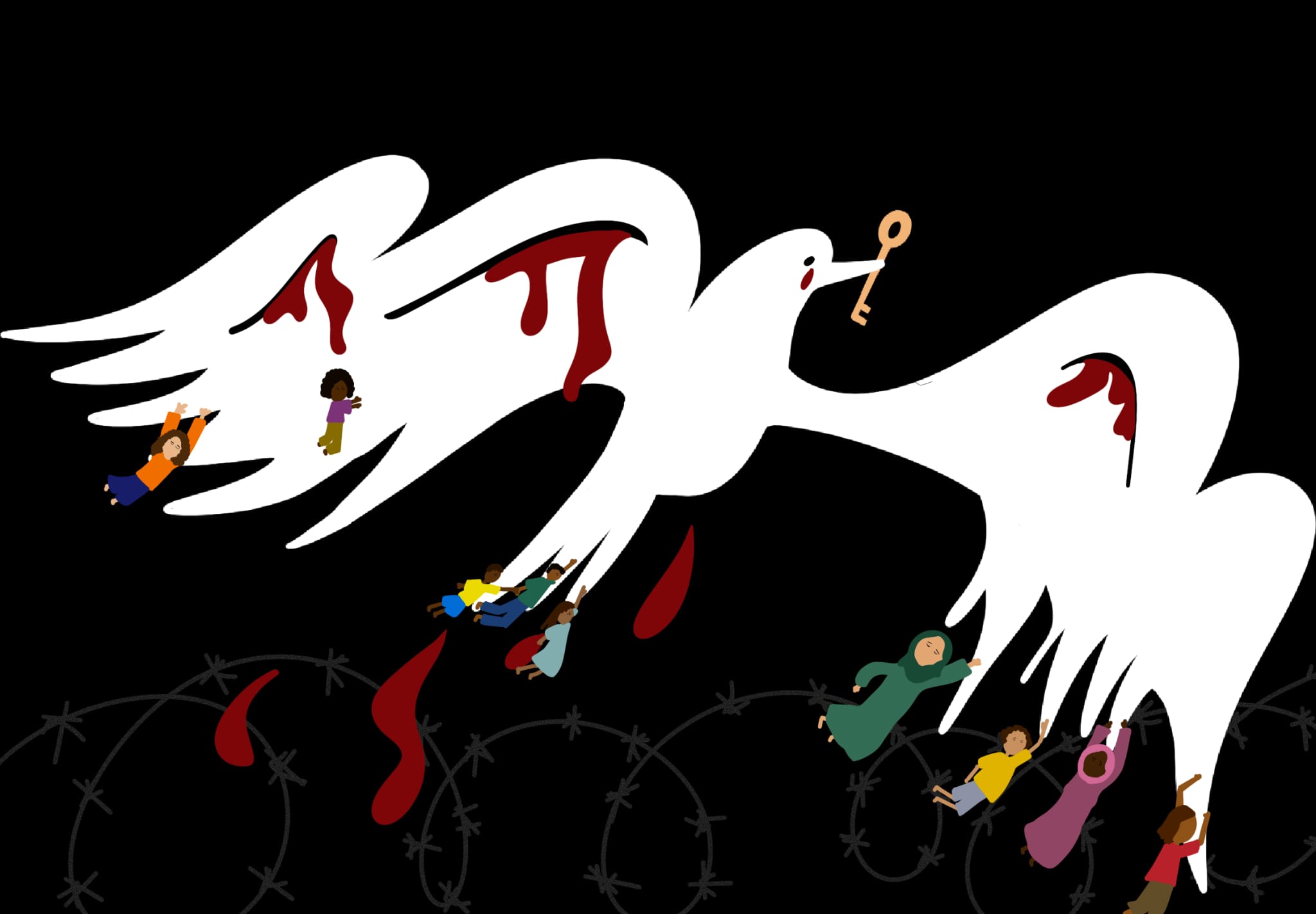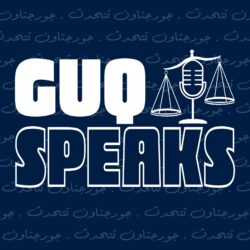For all the talk about free speech and expression, universities across the country, empowered by governmental institutions, have severely suppressed pro-Palestine activism since Oct. 7.
On Oct. 26, Sen. Josh Hawley’s resolution, which condemned “anti-Israel, pro-Hamas” student groups as “antisemitic, repugnant, and morally contemptible for sympathizing with genocidal violence,” passed unanimously in the Senate. The resolution cited statements and actions by several chapters of Students for Justice in Palestine (SJP), a national organization that advocates for a free Palestine.
Hawley’s resolution grossly mischaracterizes SJP’s motivations and activities, denouncing protests and vigils as “praising the actions of the terrorist organization.” By charging all pro-Palestine and anti-Israel activism with the blanket accusation of antisemitism, the resolution insidiously conflates anti-Zionism with antisemitism. This is an astounding abuse of power by our lawmakers to stifle any criticism of Israel, thereby enabling the state to carry out genocide and ethnic cleansing in Palestine without accountability.
SJP and allied organizations like Jewish Voice for Peace (JVP) have long encountered barriers to organizing. Pro-Palestine activists are frequently targeted, harassed, and blacklisted by malicious extremist groups like Canary Mission. Social media platforms have been known to shadowban or censor content that highlights the violent reality of many Palestinians at the hands of Israel.
On Oct. 26, the Anti-Defamation League and Brandeis Center published an open letter to colleges and universities, calling for the investigation of SJP “for potential violations of the prohibition against materially supporting a foreign terrorist organization.” This unfounded claim, as well as Hawley’s Senate resolution, has greenlit intimidation tactics against pro-Palestine activists and intensified barriers to organizing.
On Nov. 6, Brandeis became the first private university to ban SJP indefinitely. Protesters who continued to demonstrate on campus were arrested on Nov. 10. On Nov. 8, a group of Jewish students attending a sit-in at Brown University were arrested for trespassing. On Nov. 10, Columbia suspended its chapters of SJP and JVP for a peaceful art installation. Closer to home, on Nov. 14, George Washington suspended SJP for projecting pro-Palestine messages onto the library wall. On Nov. 17, a group of 40 pro-Palestine protesters were violently arrested at the University of Michigan. The list is long—and growing.
Aside from being slanderous, this language perpetuates racist and Islamophobic stereotypes that have fatal outcomes. First, by calling vigils for Palestinian martyrs displays of “solidarity with Hamas,” the resolution echoes dangerous narratives that there are no innocent civilians in Palestine, which has been used to justify the indiscriminate bombing of Gaza. Second, the resolution engages in fear mongering, reinforcing post-9/11 stereotypes that equate all Arabs and Muslims to terrorists. This legitimizes Islamophobic hate crimes like the murder of six-year-old Palestinian American Wadea Al-Fayoume on Oct. 14.
On campuses, rising animosity towards pro-Palestine activists has manifested in heightened intimidation tactics. “Doxxing trucks” at several universities have displayed names and faces of the university’s alleged “leading antisemites”—students who have signed statements in solidarity with Palestine. At Georgetown, members of SJP have been stalked, verbally harassed, and doxxed by other students. A truck outside of Georgetown’s law campus compared SJP to ISIS and called for the extermination of “SJP terrorists.” Meanwhile, professors at these universities have faced threats to their physical safety, which have forced some to resign.
This crackdown on pro-Palestine speech isn’t limited to student activists. On Nov. 7, the House of Representatives voted to censure Rep. Rashida Tlaib, the only Palestinian American in Congress, for expressing support for Palestinian liberation through the slogan “from the river to the sea, Palestine will be free.” Some House representatives, echoing popular Zionist narratives, have claimed that this slogan calls for the supposed genocide of Jews. This bad faith misinterpretation is not only historically unfounded, but is also meant to distract people from Israel’s daily war crimes, as well as open calls by Israeli officials for the actual genocide of Palestinians.
Amidst these heightened intimidation tactics, pro-Palestine activism on campuses hasn’t wavered, as organizers find new and creative ways to work around barriers. At Georgetown, students continue to organize through vigils, walkouts, a “die-in,” solidarity shabbats, phone banking, and teach-ins. A community statement calling for a ceasefire and university divestment from occupation-supporting companies has garnered over 650 signatures. Georgetown’s chapter of JVP and other anti-Zionist Jewish organizations have worked tirelessly to dispel false narratives that pro-Palestine activism is antisemitic, as well as to illustrate how Palestinian liberation and Jewish safety go hand-in-hand.
Because SJP operates so intersectionally, their cause is much more than just Palestine—it is a movement for collective liberation. Black abolitionists in the United States have long identified with the Palestinian struggle and have taken to the streets in support of Palestine. Among an inexhaustible list, people have connected Israel’s occupation of Palestine to the former apartheid regime in South Africa, the foreign military occupations of the Philippines, Korea, Vietnam, Kashmir, and Haiti, and the simultaneous genocides in Sudan and the Congo.
At a university that professes to be committed to internationalism, it is all the more important for Georgetown to recognize the parallels between the Palestinian cause and other resistance movements against imperialism, colonialism, and white supremacy. Decolonization, after all, is more than an abstract academic theory—it is a tangible ongoing phenomenon that we should and must support in practice.
Consequently, Georgetown must reaffirm its responsibility to protect free speech and its commitment to social justice, as SJP reckons with a nationwide clampdown on pro-Palestine activism. While our current political climate enables and encourages attacks on pro-Palestine activists, the university should condemn these attempts to criminalize them. Ultimately, the intersectional and transnational grassroots organizing by SJP and allied organizations lies at the heart of our collective liberation.




